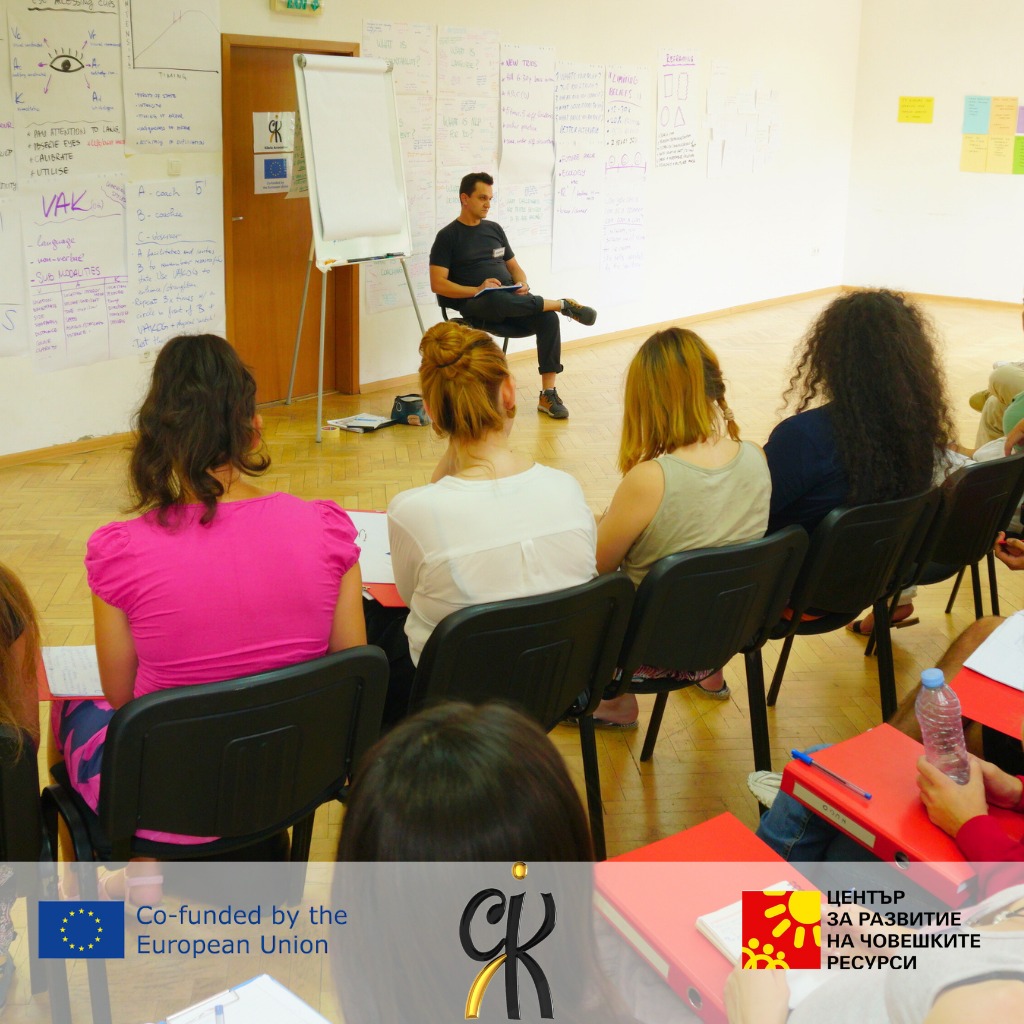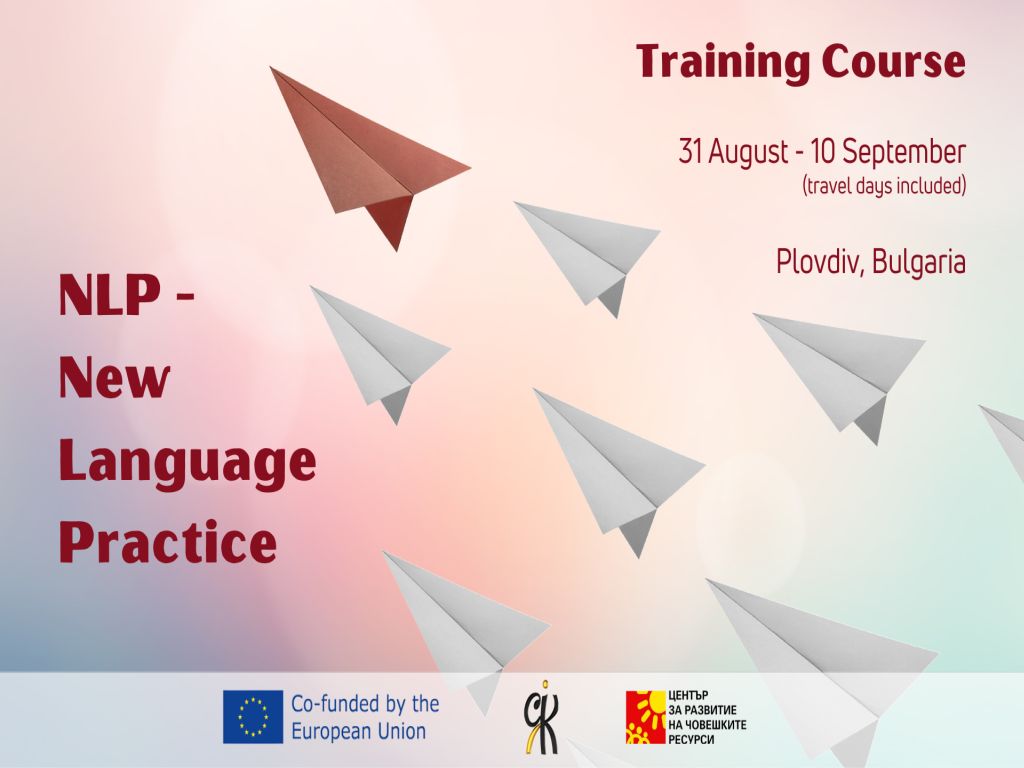
By Suzi Grozdanovska
Neuro-Linguistic Programming (NLP) is a psychological approach that explores the connection between the neurological processes, language, and patterns of human behavior. Developed in the 1970s by Richard Bandler and John Grinder, NLP has gained significant attention in both the academic and self-help domains, and also in the psychology. In the late of the summer of 2023, I had a chance to participate in a training course named “NLP – New Language Practice” that was based on Neuro-Linguistic Programming exercises. It was organized by Kibela Association in cooperation with Smokinya Foundation and Human Resources Development Center from Bulgaria and it was held in Plovdiv, Bulgaria from 31 august to 10 September 2023. This training was co-funded by the European Union and in it there were also participants from Spain, Serbia, Poland, Macedonia, Latvia, Italy, Hungary, Greece, France, Estonia, Czech Republic and also Bulgaria.
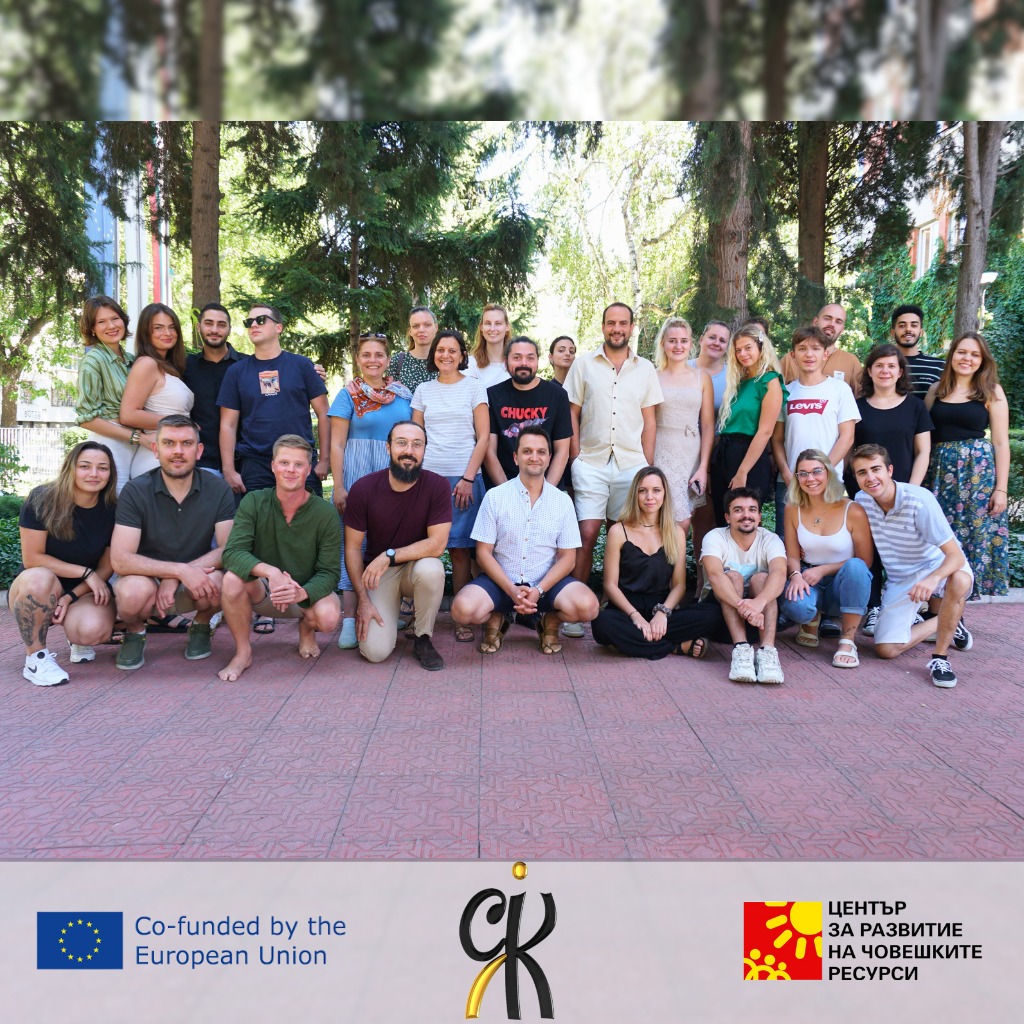
During this training we had a chance to discuss the concept of NLP, examine its theoretical underpinnings, and explore its applications in personal and professional development. I can summarize that I understood better the following concepts:
1. Understanding Neuro-Linguistic Programming:
What is NLP?
NLP (Neuro-Linguistic Programming) is the study of subjective experience. It is the discipline whose domain is the structure of subjective experience. It makes no commitment to theory, but rather has the status of a model – a set of procedures whose usefulness not truthfulness is to be the measure of its worth. NLP presents specific tools which can be applied effectively in any human interaction. It offers specific techniques by which a practitioner may usefully organize and re-organize his or her subjective experience or the experiences of a client, in order to define and subsequently secure any
behavioral outcome.
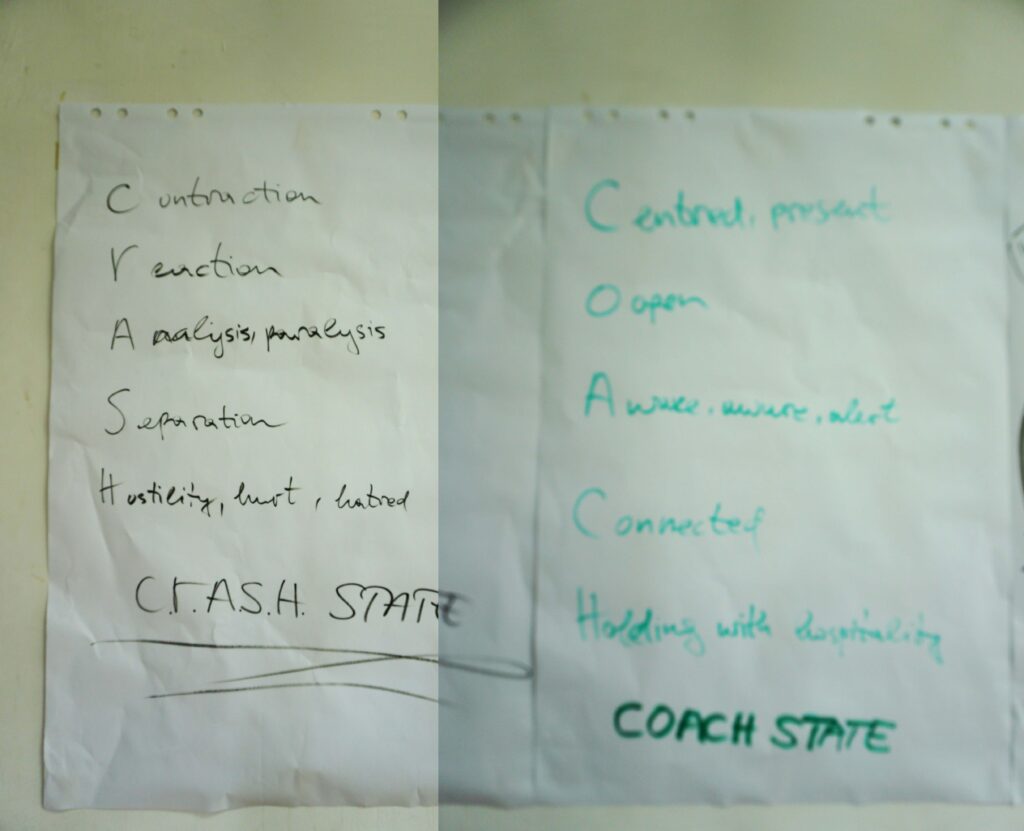
“Neuro” refers to the brain and its intricate neural networks (brain, snapping connections, neuro pathways, synapsis), while “Linguistic” focuses on the language and perspective, and the way it influences our thoughts and actions. “Programming” refers to the internal patterns and processes that shape our behavior. NLP, therefore, seeks to understand and utilize these three relationships to improve human communication, cognition, and personal growth.
What is the theoretical Foundations of NLP:
NLP draws inspiration from various fields such as cognitive psychology, linguistics, and cybernetics. It incorporates elements of Gestalt therapy, transformational grammar, and family systems therapy. NLP also embraces a set of presuppositions or beliefs that guide its practitioners, including the idea that individuals have all the resources they need to make positive changes in their lives.
2. Some of the key Techniques and Practices:
NLP encompasses a wide range of techniques and practices, which aim to enhance communication, to overcome limiting beliefs and facilitate personal change. Some of the notable techniques that we had chance to learn were:
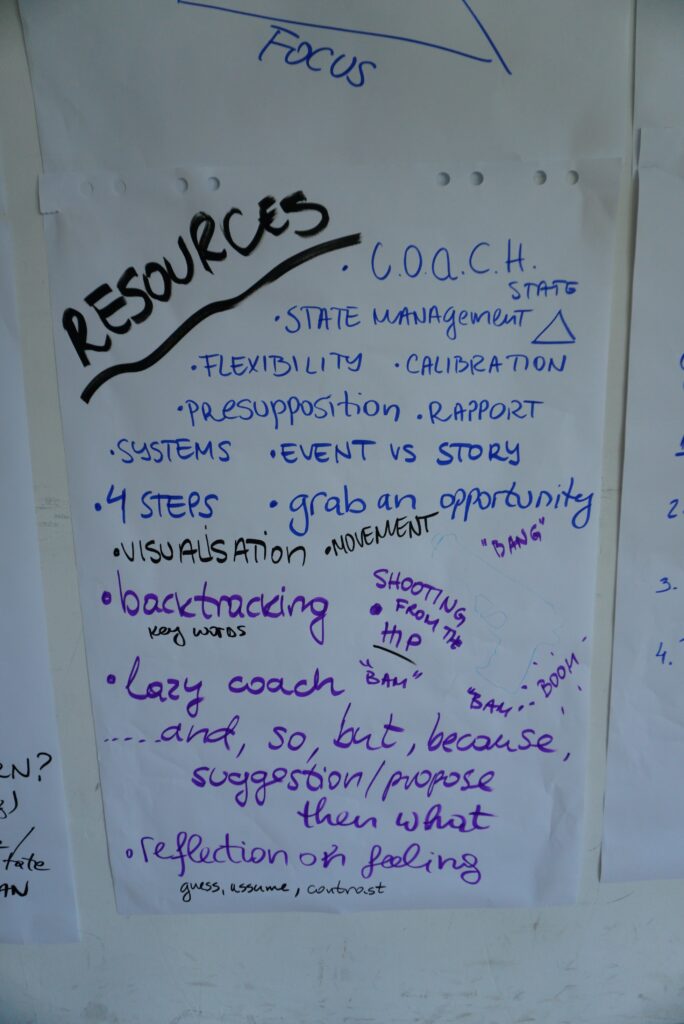
– CRASH: Construction, Reaction, Analysis/paralysis, Separation, Hostility/lust/hatred vs. COACH state;
– Backtracking: Repeating the key word from the other person;
– Lazy Coach: Using suggestion or purpose (And, So, Because);
– Rapport: NLP emphasizes the importance of establishing rapport through mirroring and matching verbal and non-verbal cues to create harmonious communication;
– Anchoring technique: Anchoring involves associating specific emotions or states with a trigger, allowing individuals to access again in the desired state;
– Reframing: Reframing helps individuals reinterpret and change their perspectives on a situation, offering alternative and empowering meanings.
NLP finds applications in various domains, including personal growth (NLP techniques can assist individuals in identifying and overcoming Limiting Beliefs, developing effective communication skills, and enhancing self- confidence); Coaching and leadership development (NLP enables professionals to unlock their potential, set goals, and achieve desired outcomes), Psychotherapy and counseling (NLP can be integrated into therapeutic practices to address phobias, traumas, and other psychological issues), Sales and marketing (NLP techniques can be leveraged to establish rapport, understand customer needs, and create persuasive communication strategies) as well as Education and learning (NLP can enhance learning strategies, improve memory retention, and promote effective teaching methodologies).
I think that Neuro-Linguistic Programming represents a versatile and powerful approach to understanding human behavior and can be used for facilitating personal and professional growth. By exploring the interplay between neurology, language, and behavior, i have seen that individuals can unlock latent potential and transform their lives. I think that also NLP holds considerable promise in the ways it can be used for coaching and youth work. I used this training mostly to work on myself and my personal development, as well as better understanding how can improve my marketing skills, for which I am grateful for the organizers that accepted me to be part of this training. I have learned a lot, but also made some friendships that i couldn’t have made if i was not among the participants.
